The views expressed in our content reflect individual perspectives and do not represent the authoritative views of the Baha'i Faith.
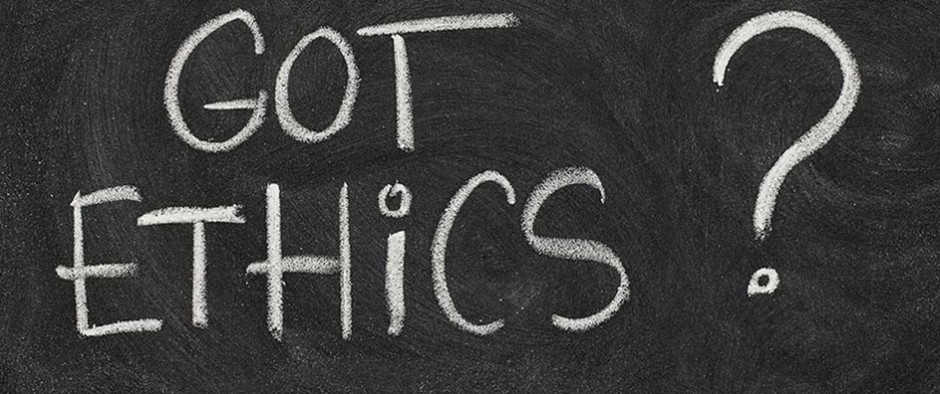
What stops us from doing bad things?
That’s the important question the popular TV show “Breaking Bad” asks. In the show, the main character has terminal cancer, so doesn’t fear the normal consequences — the law, the fear of being caught and punished, prison — that deter people from immoral or illegal behavior.

But the character does have a code of ethics. Despite his murderous ways, despite the fact that he makes and sells deadly drugs, the few ethics he has left still define him. His ethics focus on protecting the people he loves. And that’s why, despite his serious moral failings, we root for him to succeed – he’s an anti-hero with his own code, struggling to live up to his limited ethical universe.
When we think of ethics, most of us probably visualize a list of laws, a set of behaviors. The dictionary defines ethics as a system of moral principles or rules of human conduct. One Bruce Springsteen song has a simple, very clear definition of ethics — “the things we’ll do and the things we won’t”.
Have you ever examined your own code of ethics, considered what you will do, or won’t do? Like most people, do you think of yourself as a good person, someone who aspires to a moral existence? Or would you lie, steal, cheat, murder? Does your ethical code stop you from doing those things? Why?
Thinking about that weighty subject can be a powerful exercise in self-exploration, making us reflect on our morality, our beliefs, our faith. And it can unearth one of the most profound human questions: ultimately, where do ethics come from? How did they originate? Philosophers and historians have pondered this for centuries. Baha’is believe that ethics, the moral codes we all try to live by, originally come from the great religions:
Baha’u’llah teaches that material civilization is incomplete, insufficient and that divine civilization must be established. Material civilization concerns the world of matter or bodies, but divine civilization is the realm of ethics and moralities. – Abdu’l-Baha, The Promulgation of Universal Peace, p. 375.
But faiths, as we all know, can wax and wane. Historically, religions typically reveal a strong moral foundation and a humane code of ethics when they begin. As a result, religions create entire divine civilizations as their influence spreads. And then, inevitably over time, that influence begins to dissipate. Dogmas and blind imitations arise. Conflict and schism increases; wars start and expand; the moral influence of religion declines.
The Baha’i teachings say this cycle, like the natural progression of the seasons, affects all faiths:
Furthermore, just as the solar cycle has its four seasons the cycle of the Sun of Reality has its distinct and successive periods. Each brings its vernal season or springtime. When the Sun of Reality returns to quicken the world of mankind a divine bounty descends from the heaven of generosity. The realm of thoughts and ideals is set in motion and blessed with new life. Minds are developed, hopes brighten, aspirations become spiritual, the virtues of the human world appear with freshened power of growth and the image and likeness of God become visible in man. It is the springtime of the inner world. After the spring, summer comes with its fullness and fruitage spiritual; autumn follows with its withering winds which chill the soul; the Sun seems to be going away until at last the mantle of winter overspreads and only faint traces of the effulgence of that divine Sun remain. Just as the surface of the material world becomes dark and dreary, the soil dormant, the trees naked and bare and no beauty or freshness remain to cheer the darkness and desolation, so the winter of the spiritual cycle witnesses the death and disappearance of divine growth and extinction of the light and love of God. But again the cycle begins and a new springtime appears. In it the former springtime has returned, the world is resuscitated, illumined and attains spirituality; religion is renewed and reorganized, hearts are turned to God, the summons of God is heard and life is again bestowed upon man. – Abdu’l-Baha, Baha’i World Faith, p. 255-256.
Today, Baha’is believe, a new moral force has appeared, a springtime of the soul, a Divine Messenger sent to reform and renew our collective ethics. Baha’u’llah’s Faith asks us all to love every human being without prejudice; to devote our lives to the service of others; to evince honesty, trustworthiness and nobility.
Despite our foibles, follies and failings, the Baha’i teachings say, our hearts can always turn to our Creator and seek guidance. Instead of breaking bad, we can break through our lower selves and begin to ascend the moral ladder that makes us truly human.


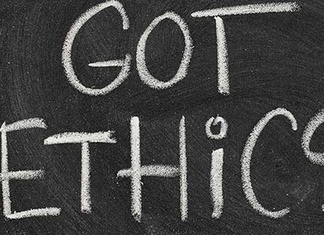


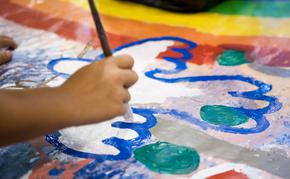
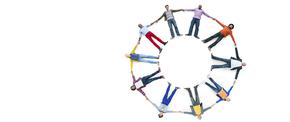

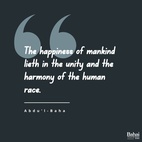
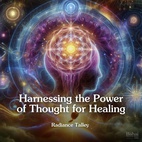
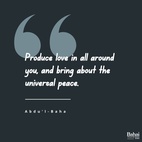

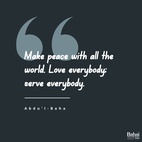

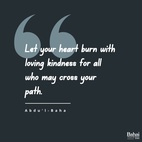


Comments
Sign in or create an account
Continue with Facebookor